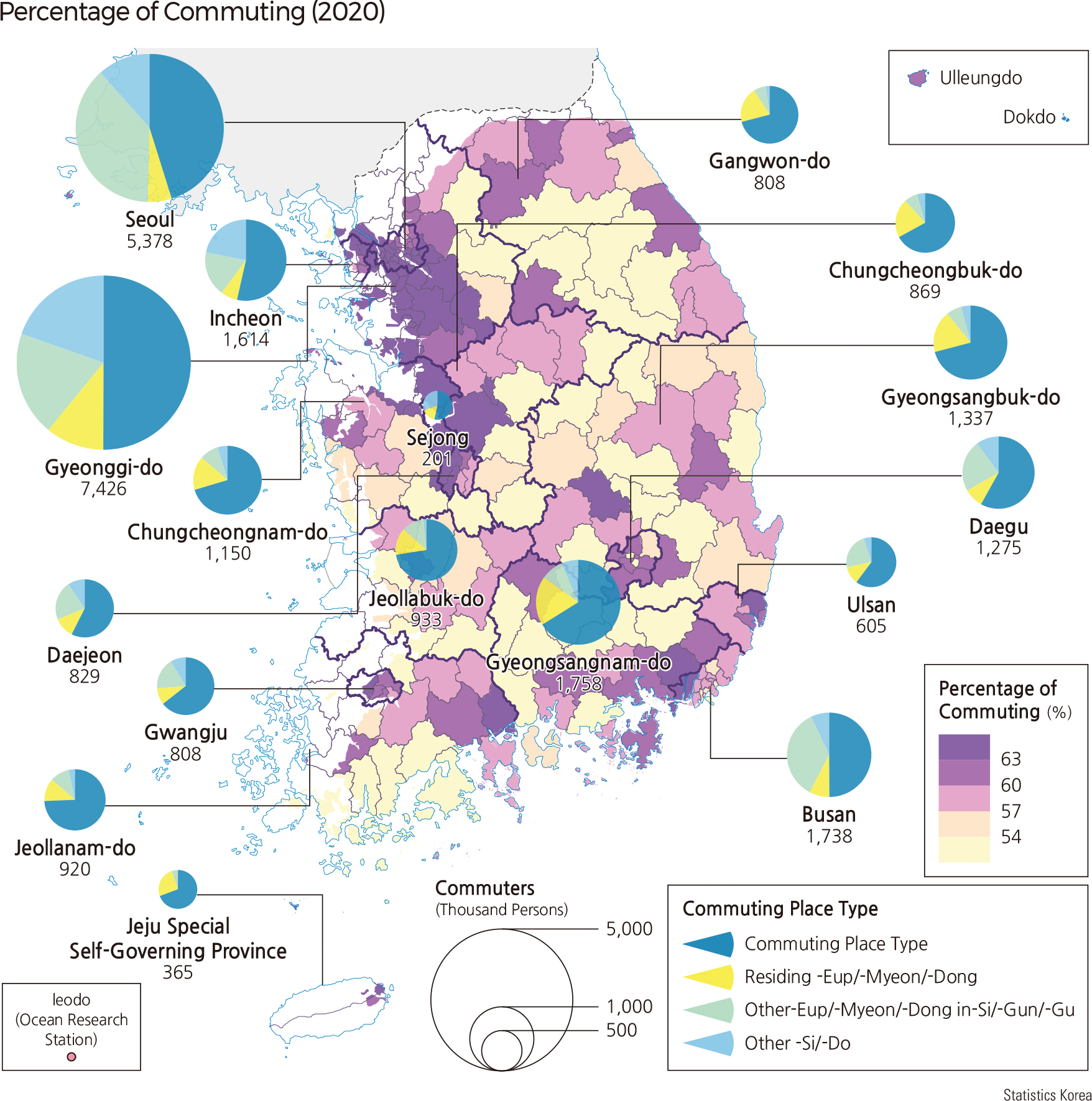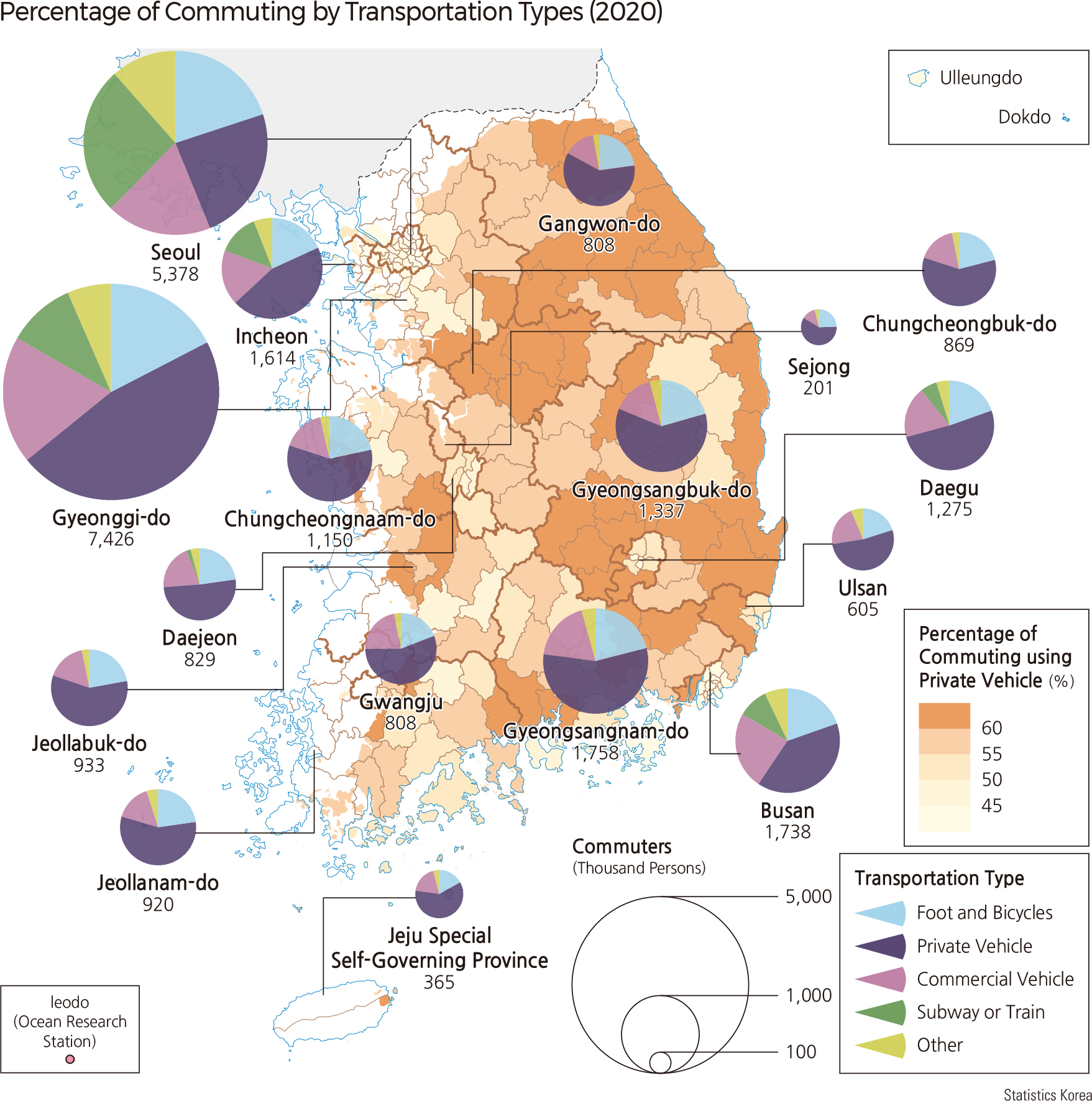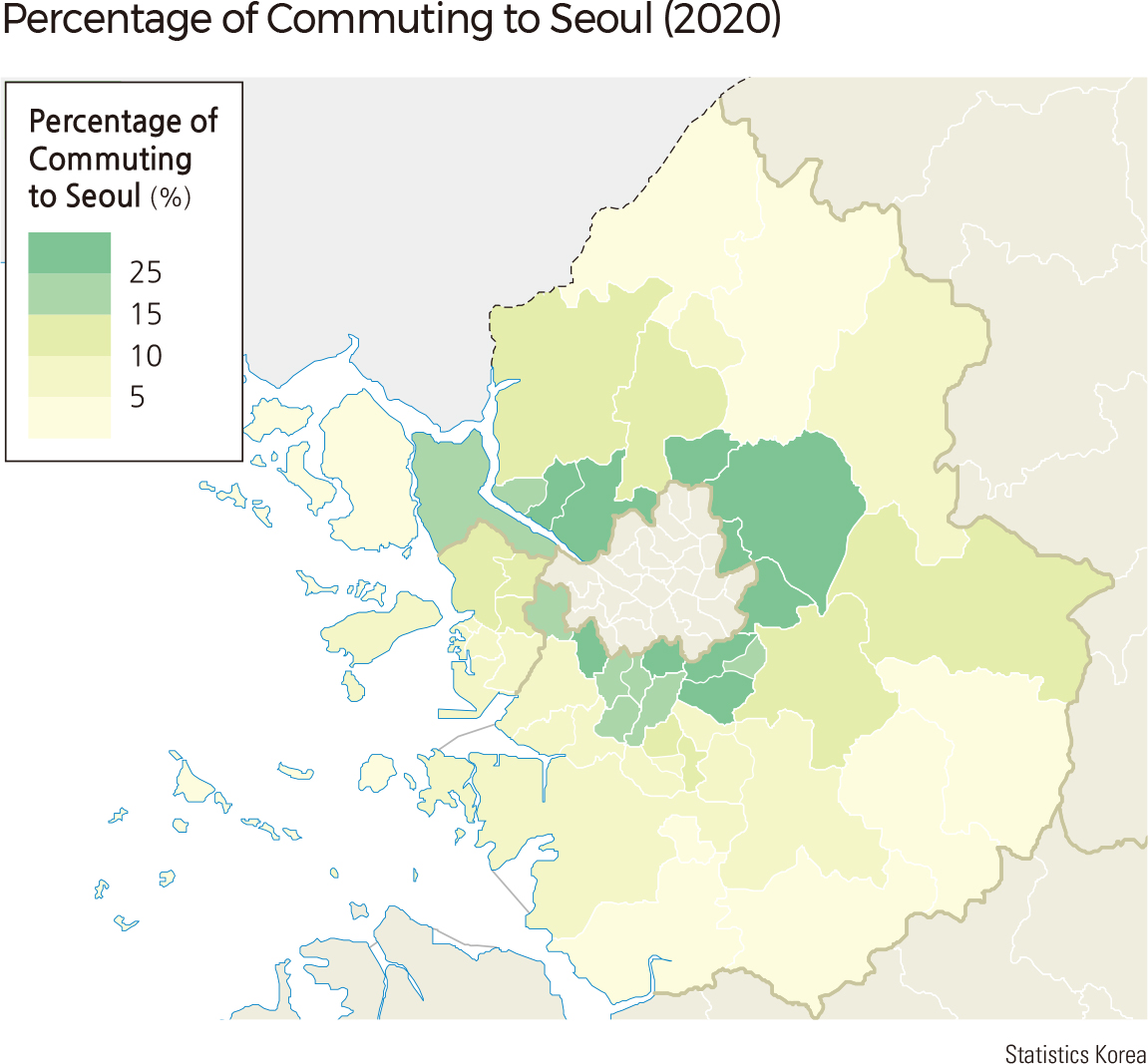English III 2021
In 2020, 28.01 million people, or 61.8% of the nation's 45.34 million people aged 12 and over, are commuting to work or school. Of these, 23.29 million are work commuters, and 4.73 million are school commuters. By region, -myeon area has the highest commuting rate, followed by -eup and -dong areas. In addition, the commuting rate for men is higher than for women. Commuting rates are lower for men in their 20s than for women due to military service. Because of the impact of COVID-19, the number of commuters and commuting rates decreased in 2020 compared to 2015. The commuting rate is high in the Seoul Metropolitan Area and regional central cities. By type of commuting, the proportion of commuting within the -eup/-myeon/-dong areas (56%) that people currently live in is the highest, followed by commuting to and from other -si/-gun/-gu areas within the -si/-do areas (21%) people currently live in, commuting to and from other -si/-do areas (12%), and commuting within the -si/-gun/-gu areas (11%) that people currently live. Sejong, Gyeonggi-do, Incheon, and Seoul have particularly high commuting rates to and from other -si/-do areas. The commuting ratio to Seoul from outside Seoul is particularly high in areas adjacent to Seoul, such as Gwacheon-si (38%), Hanam-si (38%), and Gwangmyeong-si (36%) in Gyeonggi-do, and new urban areas developed as residential use. The transportation ratios used for commuting are private vehicles (46%), by foot and bicycles (20%), commercial vehicles such as buses (19%), subway or trains (10%), and others in that order. The rate of commuting using a private vehicle is low in the Seoul Metropolitan Area and regional central cities, and the rate of using the train is high in the Seoul Metropolitan Area. In particular, in the case of Seoul, the most used means of transportation is the subway, which accounts for 26%. Meanwhile, the national average commute time is 30 minutes one way. The average commute time is the longest in the order of -do areas, metropolitan cities, and the Seoul Metropolitan Area. In particular, in the Seoul Metropolitan Area, 22% of commuters take more than 60 minutes one way, and 7% take more than 90 minutes. Comparing average commuting time in OECD countries, Korea's average commuting time is more than twice that of OECD countries. |






